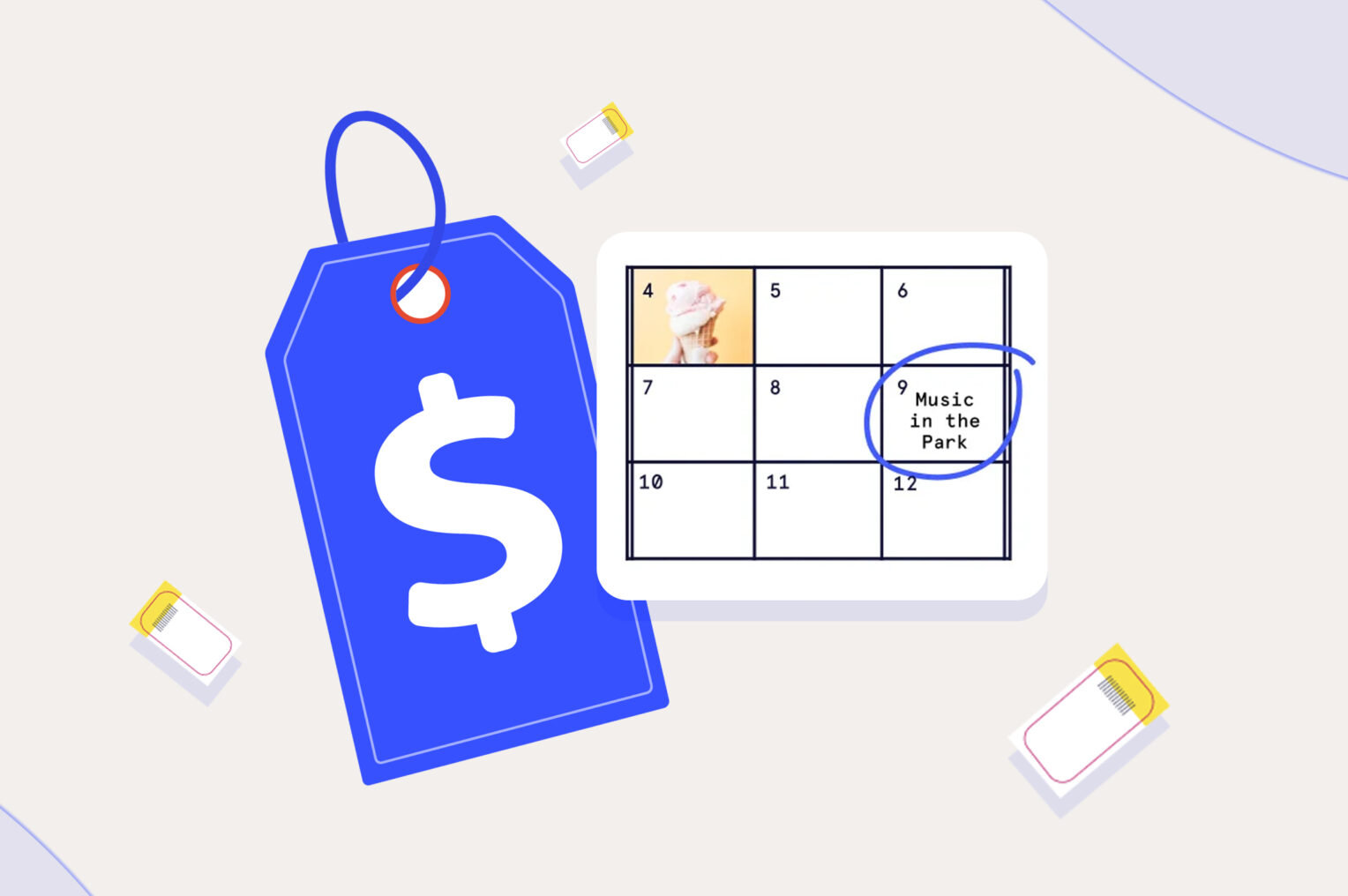How to Price Tickets for Your Events

Setting a price point for your event tickets might seem simple. But finding the sweet spot can be tricky.
If you price your event tickets too high, you’ll limit your audience. If you set the price too low, you might sell yourself short.
It’s a good idea to choose a price that’s informed by data and by your customers’ needs. Here are a few ways to make sure you’re setting the right price for your event tickets.
1. Determine how much money you need to make.
Unless you’re comfortable operating at a loss, you probably need to earn a minimum amount on ticket revenue to break even on your event.
Calculate your break-even cost by determining how much you’ll spend to put on your event. Then, estimate how many people you expect to attend. From there, you can back into your ticket price.
Here’s an example:
Larissa is hosting a wine and cheese tasting at her cheese shop. She has the capacity to host 20 people, and she will spend about $500 to cover the wine, cheese, staffing, and decor for the event. That means she’ll need to charge at least $25 per person to break even on her expenses—or more if she wants to turn a profit.
2. Study the competition.
Whether you’re pricing your event tickets or setting a price for a new product, it’s a good idea to perform a competitive pricing analysis. This allows you to gain valuable insight into the going rate for event tickets (and other products) in your industry.
For example, if you’re hosting an open mic night or a show for a local band, see what venues in your area typically charge for cover; if the average is around $5, you probably won’t get away with charging $20. Aim to keep your prices in line with your competition, or a little lower, to appeal to attendees.
3. Consider different pricing models.
Ticket pricing is straightforward, right? One ticket costs $10, so two tickets cost $20, and on and on…
But it doesn’t have to be so simple. In fact, a different pricing model could offer attractive savings for your attendees that translates into more profit for you and more reliable attendance at your events.
Here are a few different models to consider:
- Early bird pricing, which incentivizes attendees to register early before ticket prices increase.
- Member pricing. Offering a discounted members-only ticket price is a great option if you run a membership site. This can drive member ticket sales and potentially drive interest in new memberships or subscriptions.
- Series or bundle pricing. This technique works well if you’re hosting an event series: Offer a discounted ticket bundle for attendees who register for multiple events at once, then charge slightly more for individual event tickets. (i.e., a five-class yoga series costs $50, but drop-in classes cost $12 apiece).
4. Ask your attendees for input.
Feeling totally lost about what to charge? Go right to the source and ask your attendees to weigh in.
If you already have an email list of customers or past attendees, you can send a pricing survey to assess how people feel about ticket pricing. You can also keep it informal by asking your audience on social media or in-person, if your business has a brick-and-mortar location.
5. Assess and adjust.
Your ticket prices aren’t set in stone. See how attendees respond and tweak your prices for future events as needed. If your events are selling out in minutes, you might be able to price your tickets a little higher; if nobody is showing up, you might need to go lower. Experiment with different price points and pricing models to find your own sweet spot for event ticket pricing.
Looking for more tips and tools of the trade for planning and promoting your next event? Check out the rest of our blog and get to know The Events Calendar products.